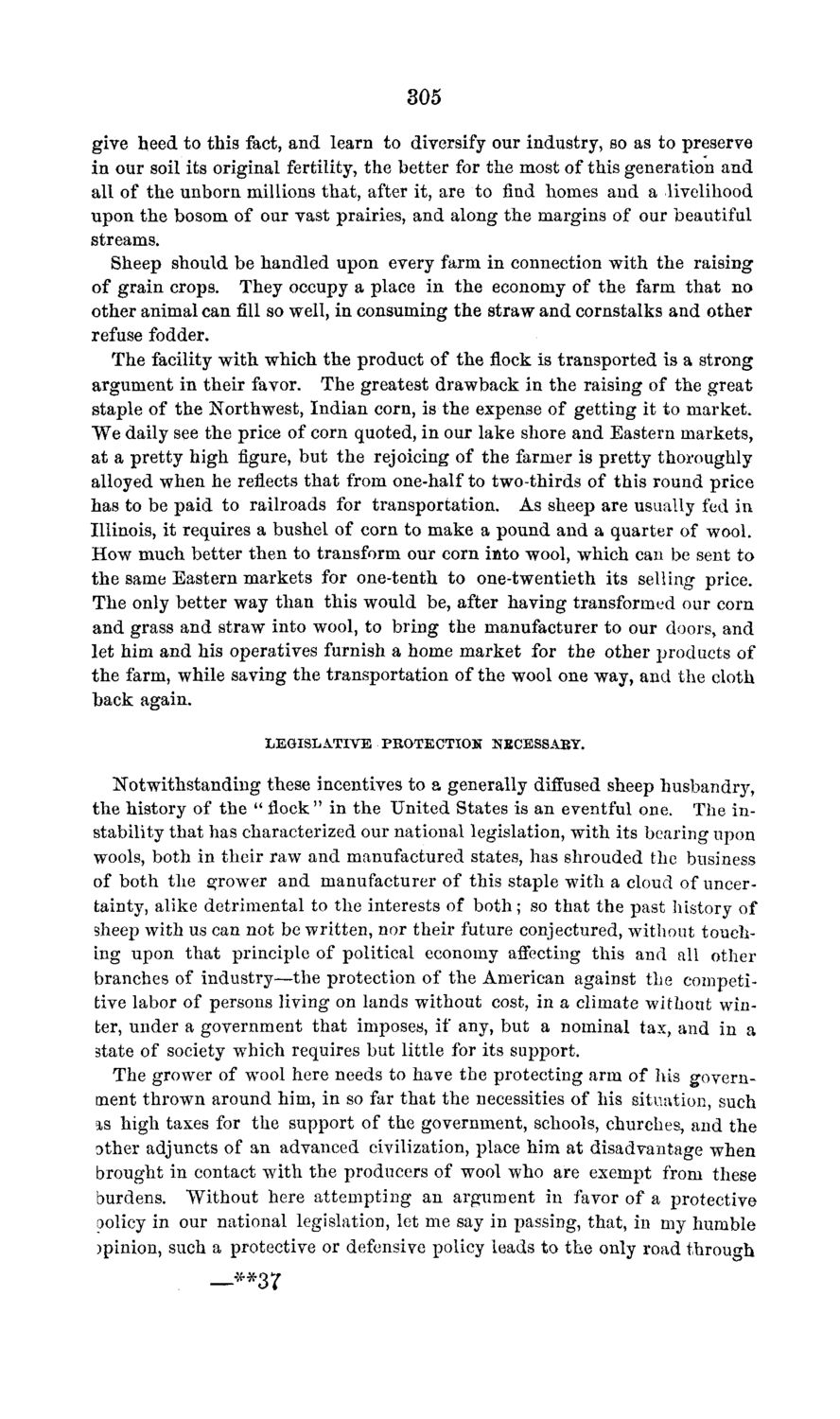| |
| |
Caption: Board of Trustees Minutes - 1869
This is a reduced-resolution page image for fast online browsing.

EXTRACTED TEXT FROM PAGE:
305 give heed to this fact, and learn to diversify our industry, so as to preserve in our soil its original fertility, the better for the most of this generation and all of the unborn millions that, after it, are to find homes and a livelihood upon the bosom of our vast prairies, and along the margins of our beautiful streams. Sheep should be handled upon every farm in connection with the raising of grain crops. They occupy a place in the economy of the farm that no other animal can fill so well, in consuming the straw and cornstalks and other refuse fodder. The facility with which the product of the flock is transported is a strong argument in their favor. The greatest drawback in the raising of the great staple of the Northwest, Indian corn, is the expense of getting it to market. We daily see the price of corn quoted, in our lake shore and Eastern markets, at a pretty high figure, but the rejoicing of the farmer is pretty thoroughly alloyed when he reflects that from one-half to two-thirds of this round price has to be paid to railroads for transportation. As sheep are usually fed in Illinois, it requires a bushel of corn to make a pound and a quarter of wool. How much better then to transform our corn into wool, which can be sent to the same Eastern markets for one-tenth to one-twentieth its selling price. The only better way than this would be, after having transformed our corn and grass and straw into wool, to bring the manufacturer to our doors, and let him and his operatives furnish a home market for the other products of the farm, while saving the transportation of the wool one way, and the cloth back again. LEGISLATIVE PROTECTION NECESSABY. Notwithstanding these incentives to a generally diffused sheep husbandry, the history of the " flock" in the United States is an eventful one. The instability that has characterized our national legislation, with its bearing upon wools, both in their raw and manufactured states, has shrouded the business of both the grower and manufacturer of this staple with a cloud of uncertainty, alike detrimental to the interests of both; so that the past history of sheep with us can not be written, nor their future conjectured, without touching upon that principle of political economy affecting this and all other branches of industry—the protection of the American against the competitive labor of persons living on lands without cost, in a climate without winter, under a government that imposes, if any, but a nominal tax, and in a state of society which requires but little for its support. The grower of wool here needs to have the protecting arm of his government thrown around him, in so far that the necessities of his situation, such as high taxes for the support of the government, schools, churches, and the other adjuncts of an advanced civilization, place him at disadvantage when brought in contact with the producers of wool who are exempt from these burdens. Without here attempting an argument in favor of a protective policy in our national legislation, let me say in passing, that, in my humble >pinion, such a protective or defensive policy leads to the only road through —**37
| |